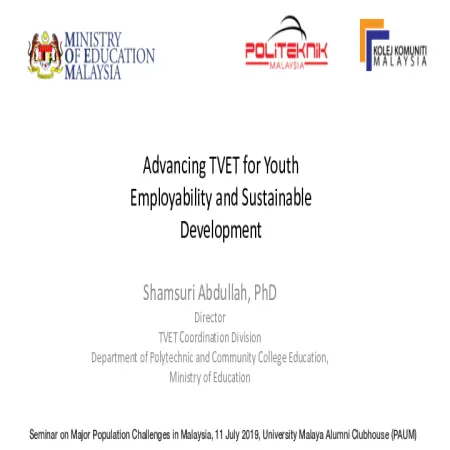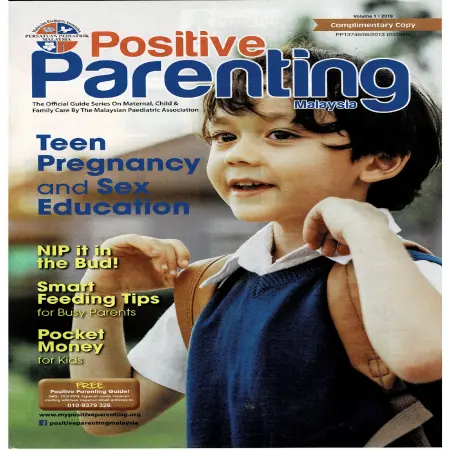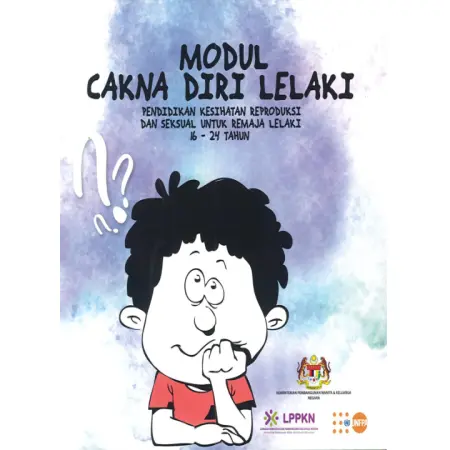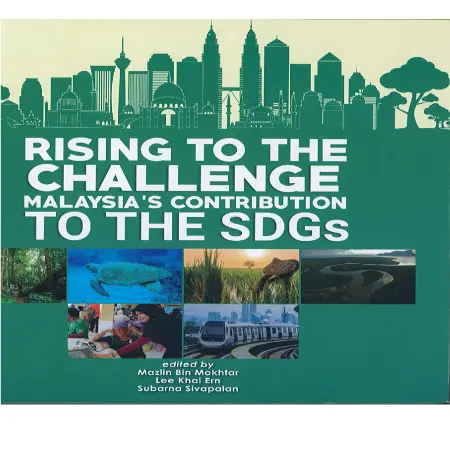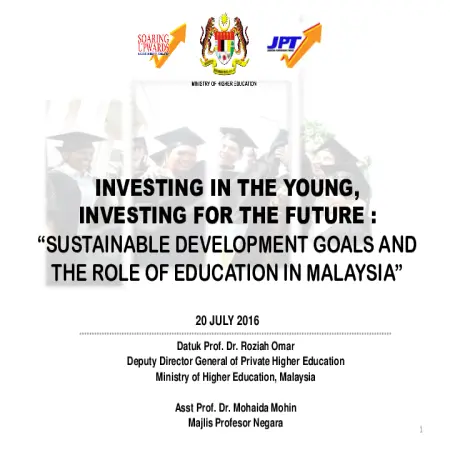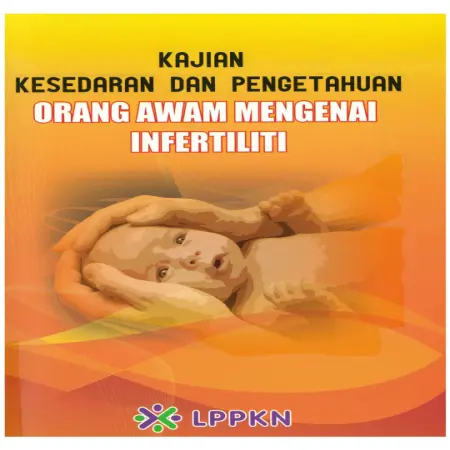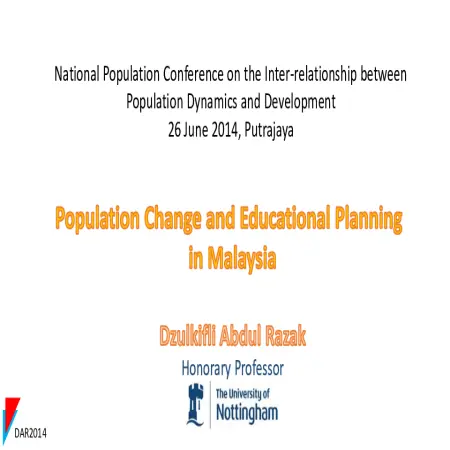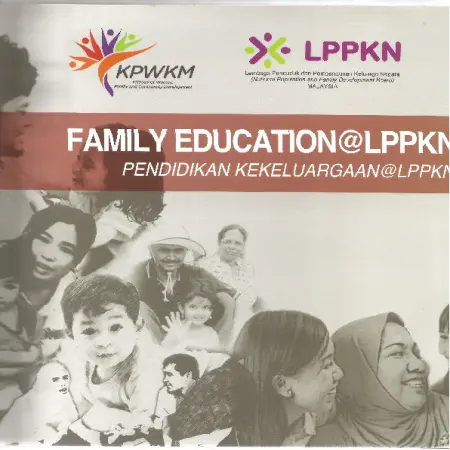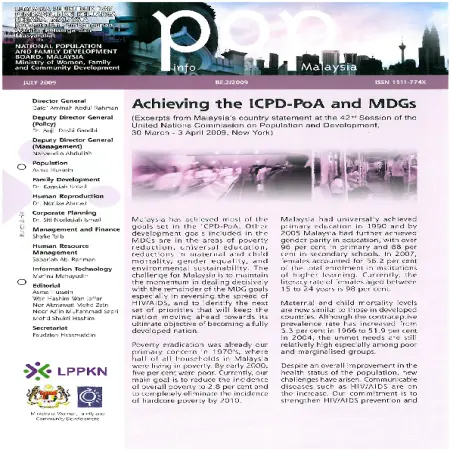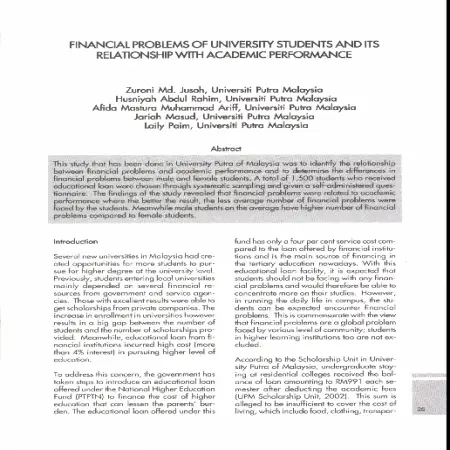TOPICS
Results for Topics : "Education"
|
|
Teen pregnancy and sex education
Item Type: Article
Editor:
Year: 00/00/2019
Abstract: Teenage pregnancy refers to any pregnancy in women or girls aged 19 years or younger. In 2016, the Ministry of Health recorded more than 12,000 teenage pregnancies in Malaysia. The National Registration Department reported that 4,992 children were born out of wedlock to girls aged 18 years and below. Teenage pregnancy is associated with immediate as well as long-term health risks. It is also accompanied by a number of negative consequences that are detrimental to the well-being of young mothers – disruption of education, limitation of opportunities for self-development and employment, social stigma and increased exposure to violence and exploitation. This article examines some circumstances resulting in teenage pregnancy and explores ways to support teenagers who face difficulties resulting from unintended pregnancy.
|
|
|
|
|
|
Modul Cakna Diri Lelaki Pendidikan Kesihatan Reproduksi dan Seksual Untuk Remaja Lelaki Berumur 16-24 Tahun
Item Type: Module
Editor:
Year: 00/01/2018
Abstract: The Sexual and Reproductive Health Module for boys and young men age 16 to 24 years was developed to address sexual and reproductive health as well as social issues for boys and young men. It is also aim to create awareness on the importance of reproductive health and social education as well as gender equality for future well-being. This module is divided into two (2) main target groups i.e. general adolescents (Module A) and most-at-risk adolescents (Module B). The main components of Module A includes topics on adolescent growth, developmental, health, psychosocial - 3R (Respect, Relationship and Responsibility), laws and regulations, drugs and substance abuse. Module B covers topics on risky social behaviors, risky sexual behaviors and teen pregnancy. This module is developed as an interactive form using various learning methods such as role play, sketches, group work and discussions to attract participation of boys and young men.
|
|
|
|
|
|
Reproductive and social health education
Item Type: Book Section
Editor:
Year: 01/01/2017
Abstract: On 6th December 2009, the Cabinet approved the PEKERTI Policy & Action Plan proposed by Ministry of Women, Family and Community Development (MWFCD), which aims to guide young people from getting involved in social problems.
|
|
|
|
|
|
Investing in young people: matching education with employment needs
Item Type: Conference or Workshop Item
Editor:
Year: 00/00/2016
Abstract: Education has always been the engine of growth for Malaysia. Malaysia aspiration to become a high income nation by 2020. Multi-prong strategies which include access to education for all among the pillars to transforming the nation. Malaysia has always been embracing with the strategies and action plans of the sustainable development goals regardless of class, race, gender, age and creed.
|
|
|
|
|
|
Kajian kesedaran dan pengetahuan orang awam mengenai infertiliti
Item Type: Research Report
Editor:
Year: 00/01/2014
Abstract: The study conducted by the Human Reproductive Division, National Population and Family Development Board aims to identify the extent of the public awareness and knowledge about infertility. The sampling method of the study is convenience sampling; involving the display of questionnaires on other websites are also provided. The completed questionnaires were collected, recorded and analyzed using SPSS software. The statistical analysis carried out is descriptive statistics and the Chi-square Test.
|
|
|
|
|
|
Population change and educational planning in Malaysia
Item Type: Conference or Workshop Item
Editor:
Year: 00/00/2014
Abstract: Strengthen national capacity to plan and manage changing. Educational systems in response to the needs of society. Planning and preparing the education sector through long-term involvement and focused [sustainable] interventions. Improve the quality of the educational experience itself. Realise global agenda like ESD, EFA, MDGs and post-2015 Development (Education) Agenda. This presentation is describes about population change and educational planning in Malaysia.
|
|
|
|
|
|
Family education@LPPKN = Pendidikan kekeluargaan@LPPKN
Item Type: Book
Editor:
Year: 00/00/2013
Abstract: The National Population and Family Board (NPFDB), agency under the Ministry of Women Family and Community Development which was initially known as the National Family Planning Board (NFPB) was established in 1966 as a statutory body. Its main objective was to implement the National Family Planning Programme but its scope has now been expanded to Population, Family Development and Reproductive Health which is in line with 1984 Amendments Act. The Malaysian family today is facing numerous challenges due to rapid socio-economic development and globalization. New challenges have emerged in the social and economic arena, which have had an impact on Malaysian families. Among the challenges experienced by the family institution are changing family structure and dynamics, balancing family and career, fulfilling economic needs parenting of young children and adolecents as well as weakening marital and family relationships. Parallel with the Government's emphasis on strengthening the family institution, the NPFDB has developed and implemented a wide range of family development programmes encompassing advocacy activities and promotion, training and education, services, research and development (R&D) as well as policy formulation. In December 2010, the Government approved the National Family Policy and its Plan of Action, thus mainstreaming the family perspective in all socio-economic planning and development.
|
|
|
|
|
|
Achieving the ICPD-PoA and MDGs
Item Type: Newsletter
Editor:
Year: 00/07/2009
Abstract: Malaysia has achieved most of the goals set in the ICPD-PoA. Other development goals included in the MDGs are in the areas of poverty reduction, universal education, reductions in maternal and child mortality, gender equality and environmental sustainability.
|
|
|
|
|
|
Financial problems of university students and its relationship with academic performance
Item Type: Article
Editor:
Year: 00/01/2004
Abstract: This study that has been done in University Putra of Malaysia was to identify the relationship between financial problems and academic performance and to determine the difference in financial problems between male and female students. A total of 1,500 students who received educational loan were chosen through systematic sampling and given a self-administered questionnaire. The findings of the study revealed that financial problems were related to academic performance where the better the result, the less average number of financial problems were faced by the students. Meanwhile male students on the average have higher number of financial problems compared to female students.
|
|
|
|





